As scuba divers, we are given the good fortune to see what few others have the magic of an underwater world. But times are changing and the ocean is becoming more accessible than ever before. A sea of change is in the air, and sadly divers are getting a front-row seat at the human destruction that is plaguing our waterways. Lately, it seems like the greatest wonder of the ocean is how it’s still alive after everything we are putting it through.
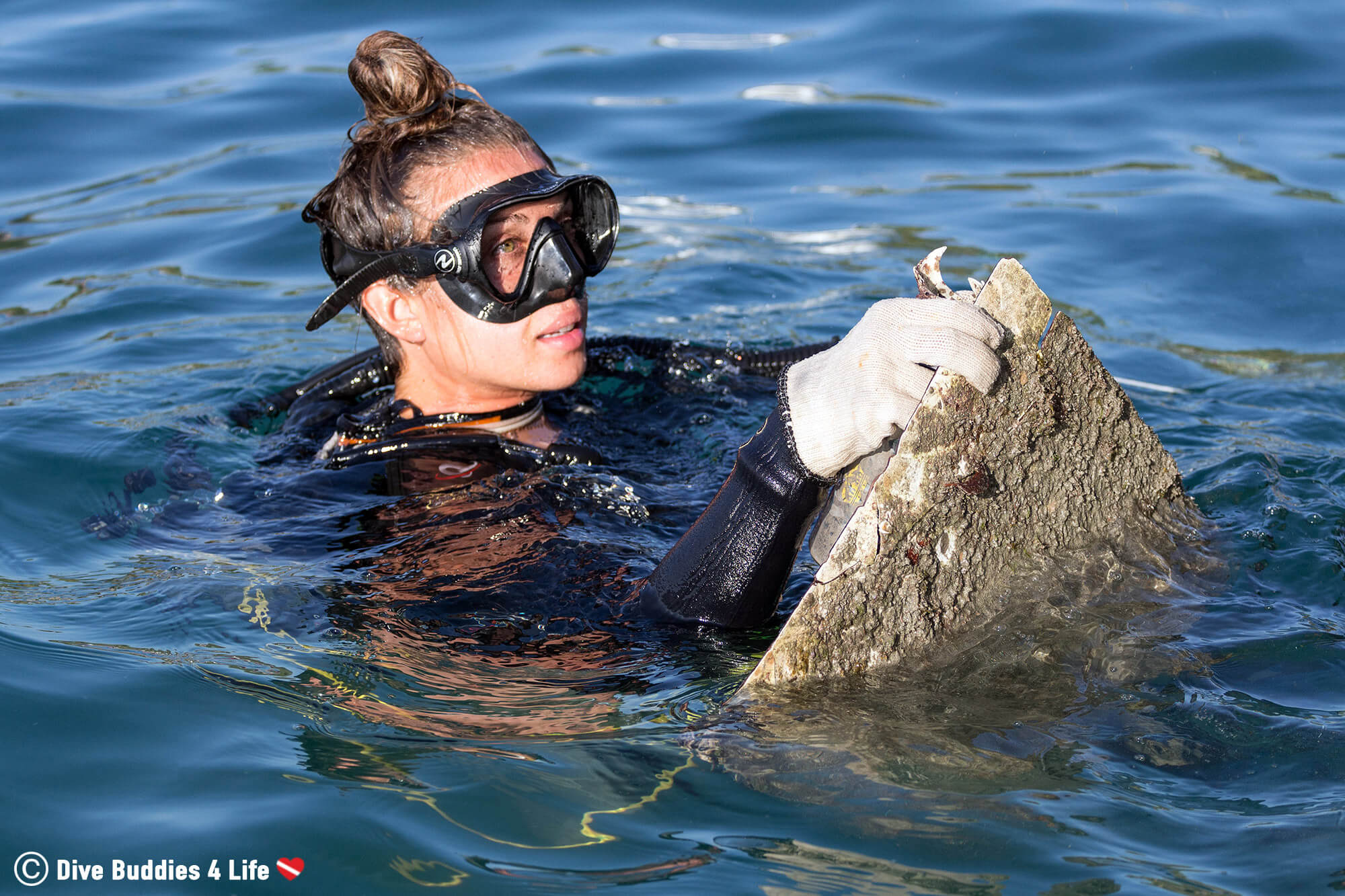
With coral bleaching, plastic whirlpools and invasive species at the forefront of the environmental news, it doesn’t take a genius to figure out that our lakes, rivers, and oceans are in dire need of help.
Even though scuba divers are some of the most eco-conscious people on the planet, we aren’t perfect, and there is always room for improvement.
The age-old saying: “take only pictures, leave only bubbles” is probably the single most important rule of scuba diving.
There is so much beauty in the underwater world it is tempting to want to collect and bring home memorabilia from our adventures. What most people forget is that we are visitors to the marine realm and as such we should act accordingly.
Scuba diving is not a place for souvenir shopping. Diving and collecting trophies have long become a thing of the past. The only thing you should be taking with you when you leave your dive is photographic memories recorded on your underwater camera.
As beautiful as they might look, lionfish are a big invasive problem. I’m not an advocate for hunting, but when it comes to these destructive fish, something needs to be done to contain the population.
Lionfish originally come from the Indo-Pacific region of the globe and first made their appearance in the Atlantic during the late 1980s when someone mistakenly introduced them to the ecosystem. Having no natural predators in this new area, the species has exploded and taken over much of the Atlantic and Caribbean waters, out-competing and even preying on the native fish species.
Lionfish have become such a menace to the North and South American continents that there are dozens of sustainable organizations that sanction hunting events and group collections trying to keep the growing population at bay. Most of these environmentally friendly organizations even go as far as to train divers on how to harvest lionfish safely and responsibly.
Dive with a purpose, dive to get rid of lionfish!
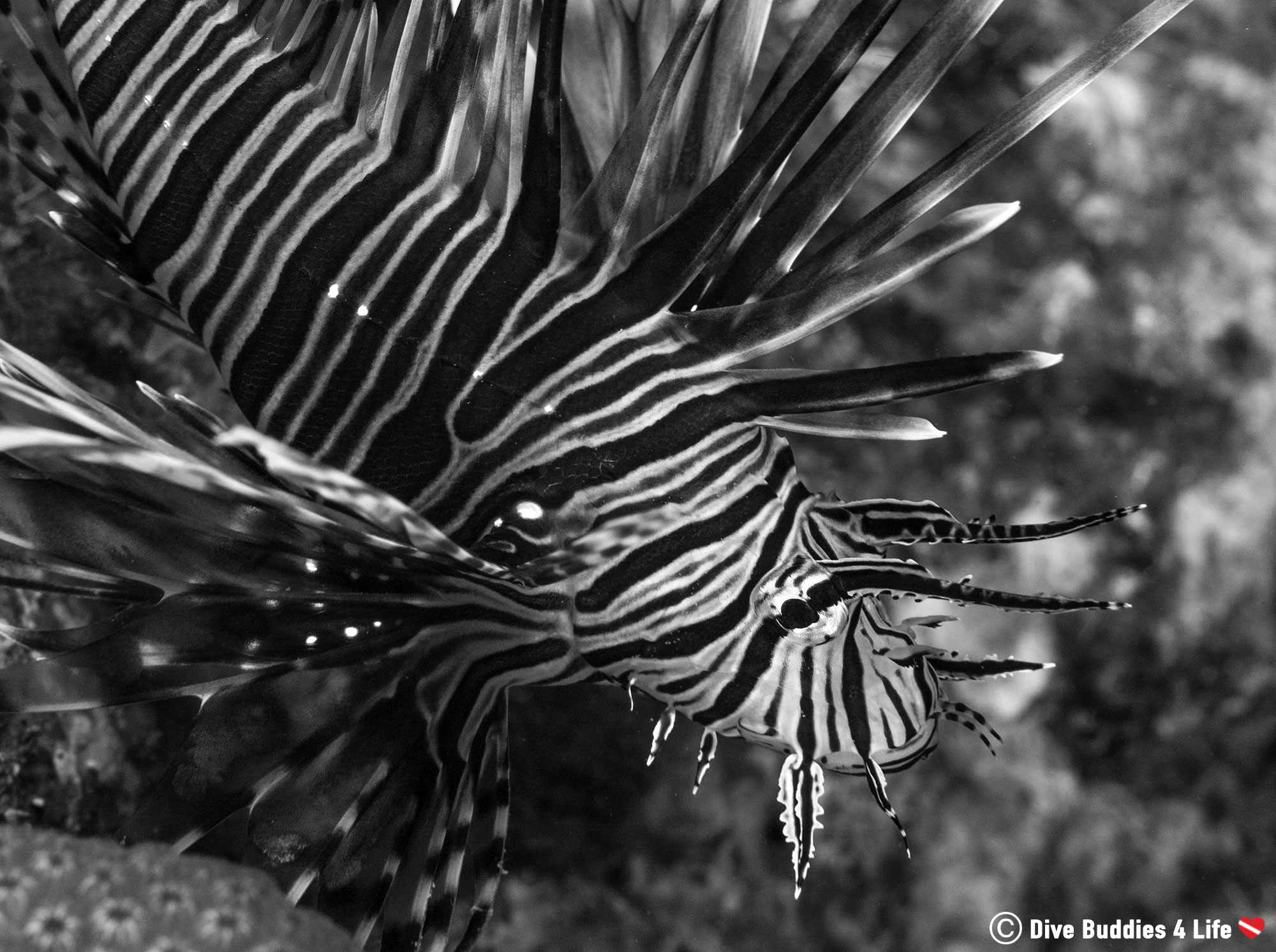
First learning to scuba dive can be tough (especially if you are not incredibly comfortable in the water). There is so much bulky gear to get used; buttons to tinker with; gauges to keep track of and then there’s that ever-elusive neutral buoyancy.
Every year, tonnes of rookie scuba divers destroy many decades of coral growth in a single fin kick without knowing any better.
Don’t wait until you’re hovering above a coral reef to perfect your buoyancy. By practicing your scuba skill in a controlled environment free of currents, waves, and seemingly endless depths, you are setting yourself up for diving success. Pick a pool or shallow sandy bottom lake where you can spend the time and figure out how your body moves, floats and responds to the water.
By practicing perfection you are not only minimizing the risk to the critters around you, but you are making yourself a safer scuba diver.
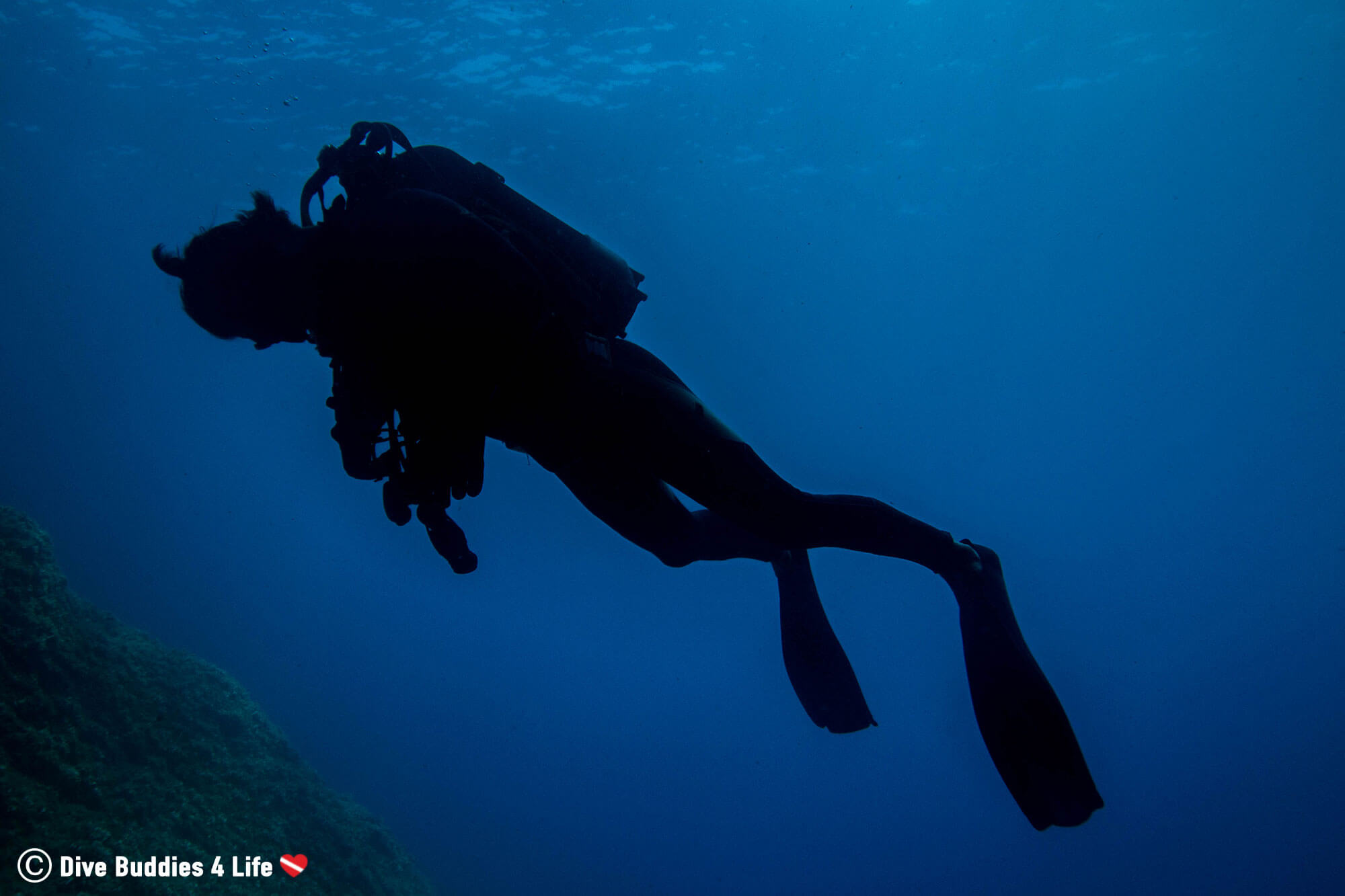
In the big spectrum of things a single piece of garbage may not seem like much, but when multiplied by thousands of divers all over the planet, picking up one piece of garbage on a single dive could actually change the world.
Let’s get every scuba diver into the habit of leaving the dive location better than the way they found it because when it comes to keeping the ocean clean, every little bit counts!

Take your scuba one step further and make every dive count. In this day and age, people love to combine travel with volunteering. It’s a fulfilling and rewarding experience that allows travelers to explore a new country while giving back to the community at the same time.
Given that 70% of the globe is covered in water there is always so much to do in the realm of ocean conservation and never enough hands to do it. By spending your vacation reef monitoring, animal tagging, fish counting, you can aid scientists in the gathering of valuable information that can contribute to groundbreaking restoration efforts in our lakes, rivers, and oceans.
Tonnes of environmental initiatives have been launched all over the world. WWF shoreline cleanup, Project Aware, Earth Hour… there is a pretty long list of great things happening in the ocean, and often scuba divers are the ringleaders.
Now more than ever divers need to take a stand. Knowing what is eminently happening to our lake, rivers, and oceans, try to become a part of this blue movement and join a local initiative. Even a simple hometown marina cleanup can tip the scales towards a better and more eco-friendly tomorrow.
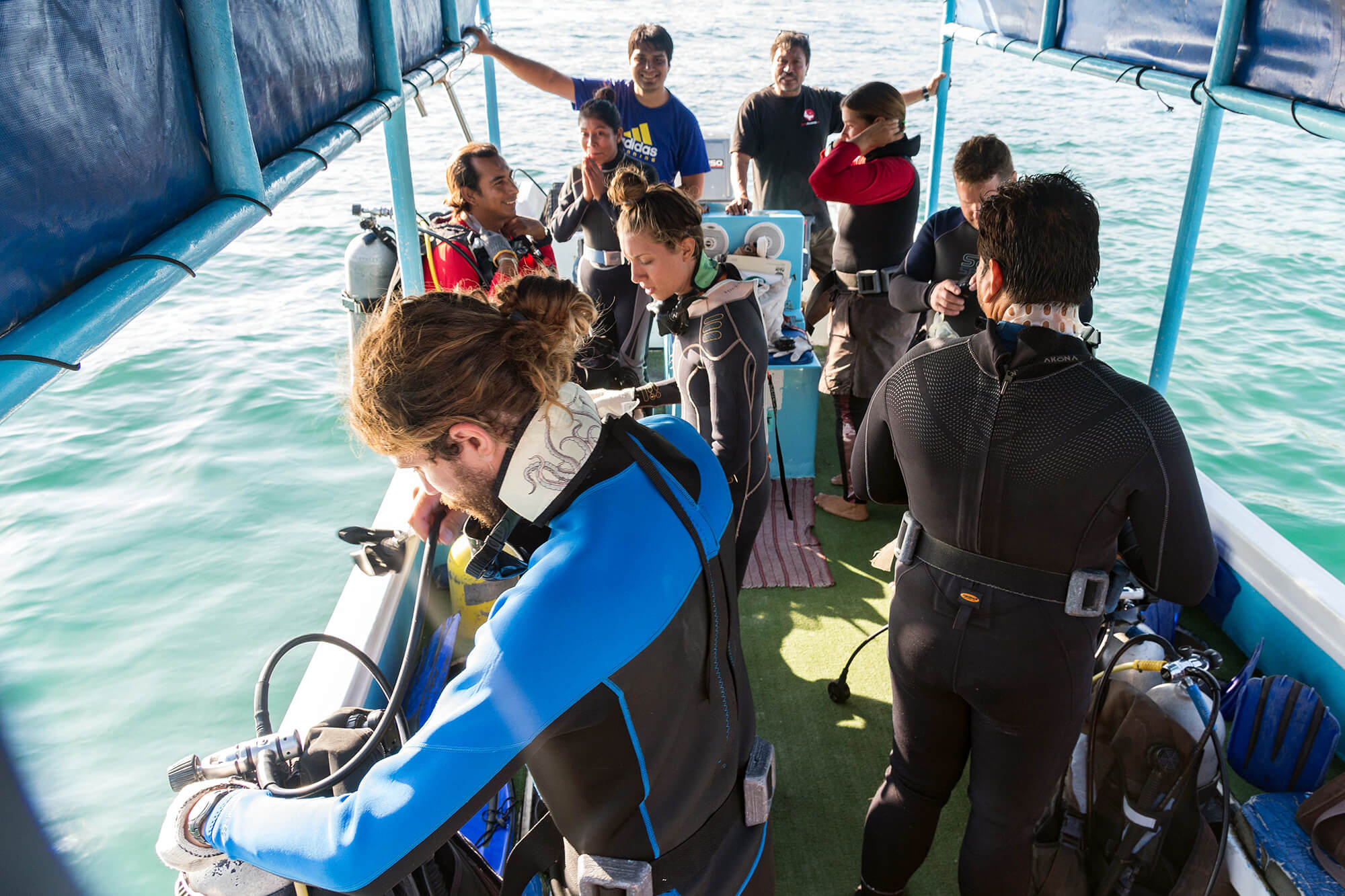
Diving just for the sake of diving is nice, but many are seeking to enrich their diving passion in some meaningful way. Being a green fin diver means taking your scuba to new and meaningful depths. Take a look at some of our favorite conservation articles.
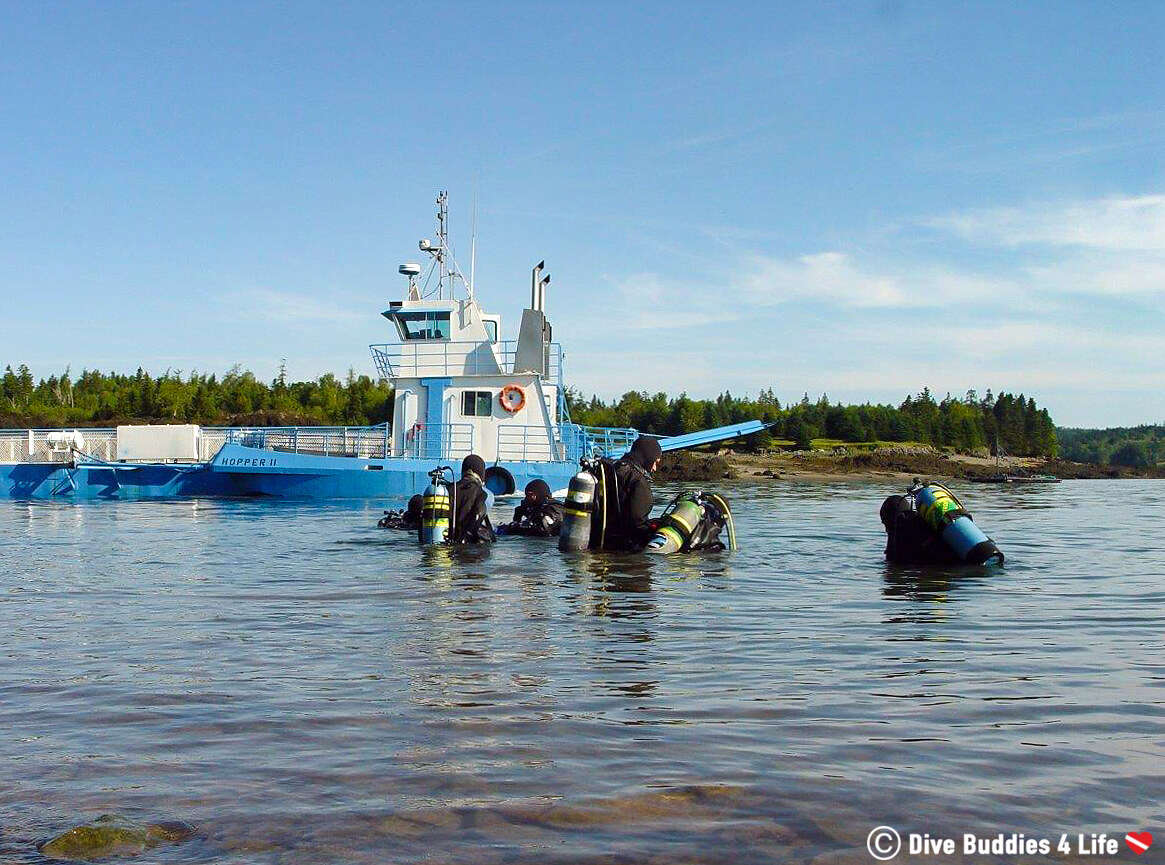
When a person falls in love with an animal, they will forever want to protect it.
By teaching people about the wonders of the underwater world, through aquariums, documentaries, and photography, we help them fall in love with some cool critters and instill a sense of respect for the ocean.
Knowledge IS power, and by educating non-divers, we can captivate people’s hearts in the same way we were captivated the first time we tried scuba diving.
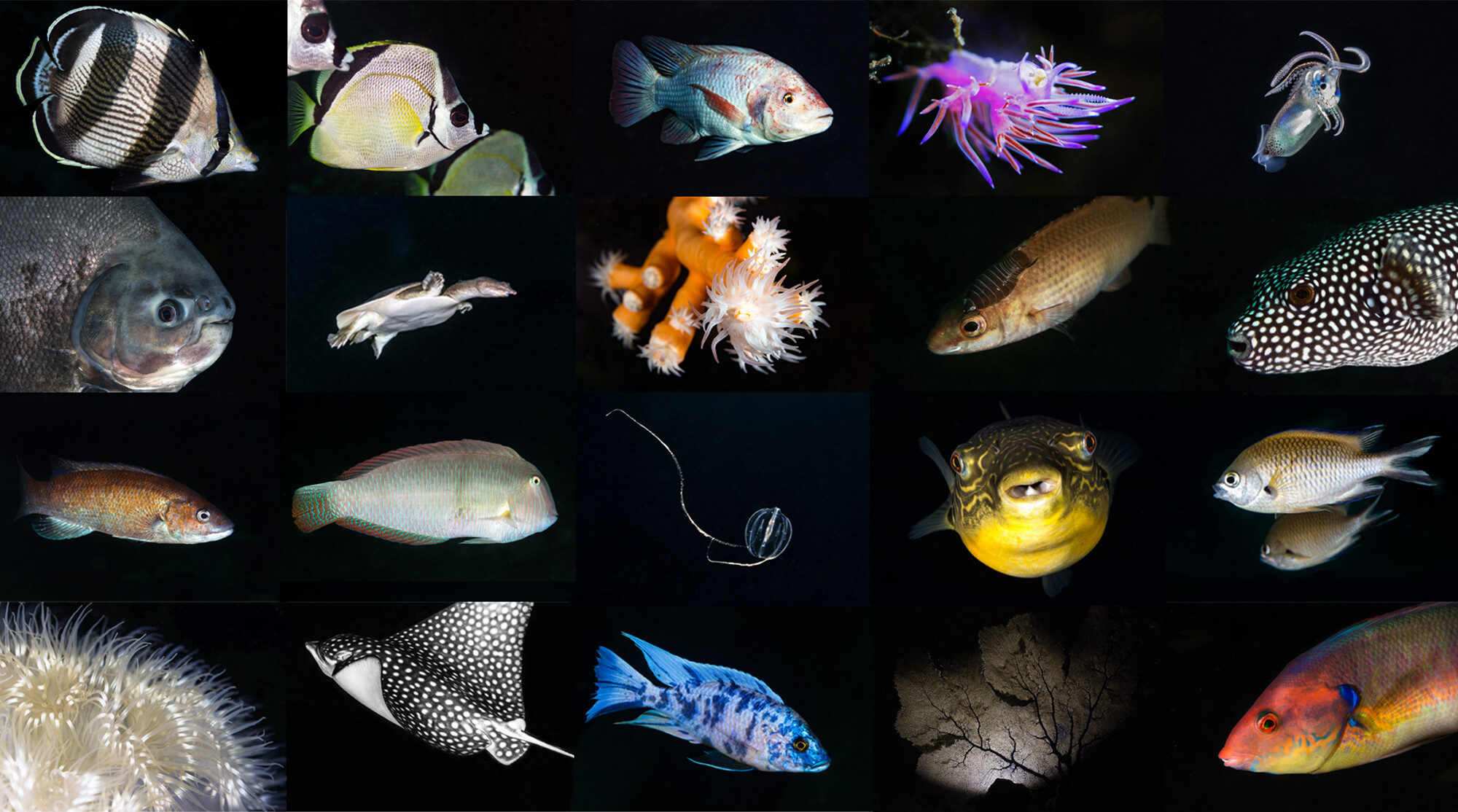
Species in the Spotlight: Dive Buddies 4 Life love’s the ocean and it is our goal to bring people closer to the critters that live there. Meet some of the quirkiest and most amazing animals that call the aquatic realm home through our monthly species in the spotlight.
When people think of being an environmentally friendly diver, they think it only happens once you are geared up in a wetsuit and heading under the waves, but being a sustainable scuba diver happens as much on land in the pre-dive prep as it does in the water.
Anything that we put on our bodies before diving inadvertently makes its way into the water column. Sunscreen, lotions, conditioners and other beauty products are very toxic to marine plants and animals, especially corals. If you can, steer clear of these products before diving and opt instead to embrace natural salt hair, wear a hat to keep the sun off your face and lotion up after you’re finished playing in the water.
Alternatively, many brands of sunscreen are beginning to move towards a reef-safe mantra. These are great options to use on your skin as they protect you and protect the environment.
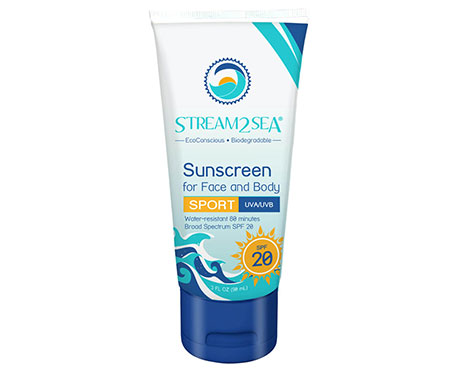
Stream2Sea SPF 20 Sunscreen: Stream2Sea’s reef-safe SPF 20 sunscreen assortment is for protection against broad-spectrum UVA and UVB. The sunscreen is water-resistant for 80 minutes of swimming or activity and contains the company’s signature antioxidant blend of Green Tea, Tulsi, Wakame and Olive Leaf.
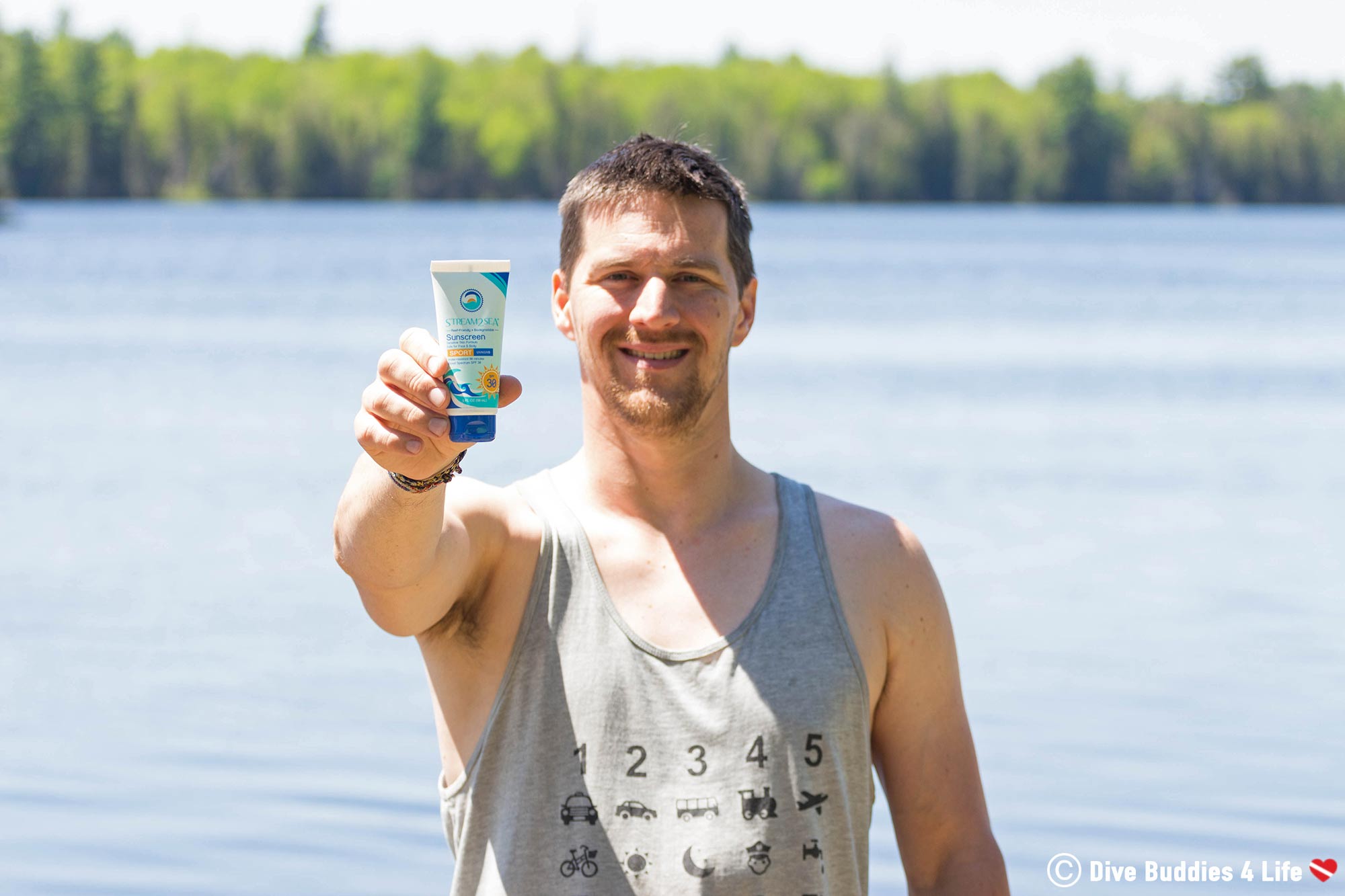
You don’t need to book a 10-hour flight and stay at a resort down south to be able to scuba dive.
There are plenty of diving adventures just waiting to be had in your own backyard (unless you live in the middle of the desert). Consider staying close to home next time you get the dive bug and wet your gills in some local watering holes. You’d be surprised at all the neat things you might discover around your home country.
Discover your home country and help save the environment at the same time. Sounds like a win-win to me.
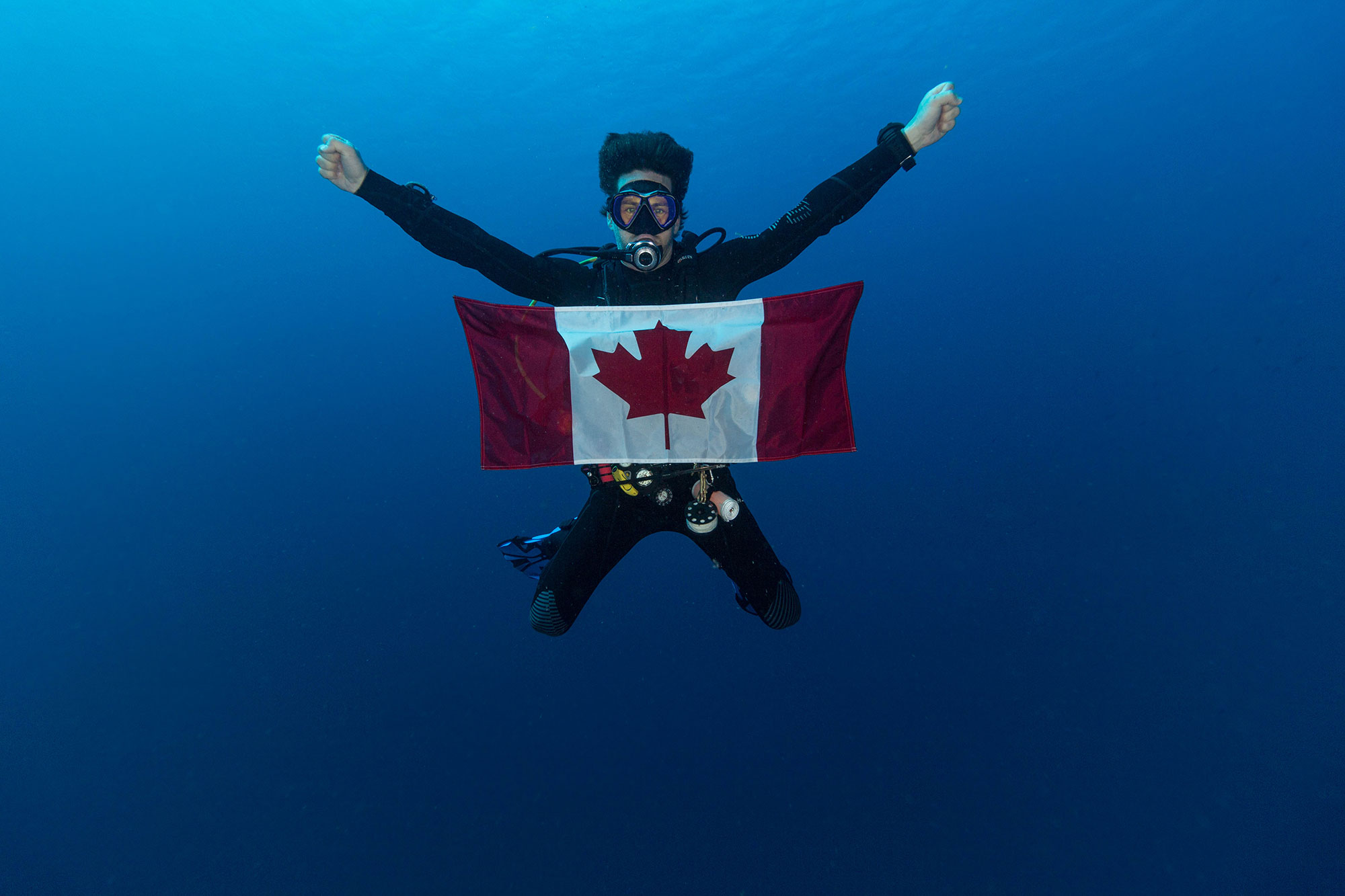
How are we diving locally? Check out Canadian Splash, where we will be diving every province and territory in our home country. This 13-part project will connect people to Canada’s underwater world as well as showcase the beauty and fragility hidden beneath the waterline.
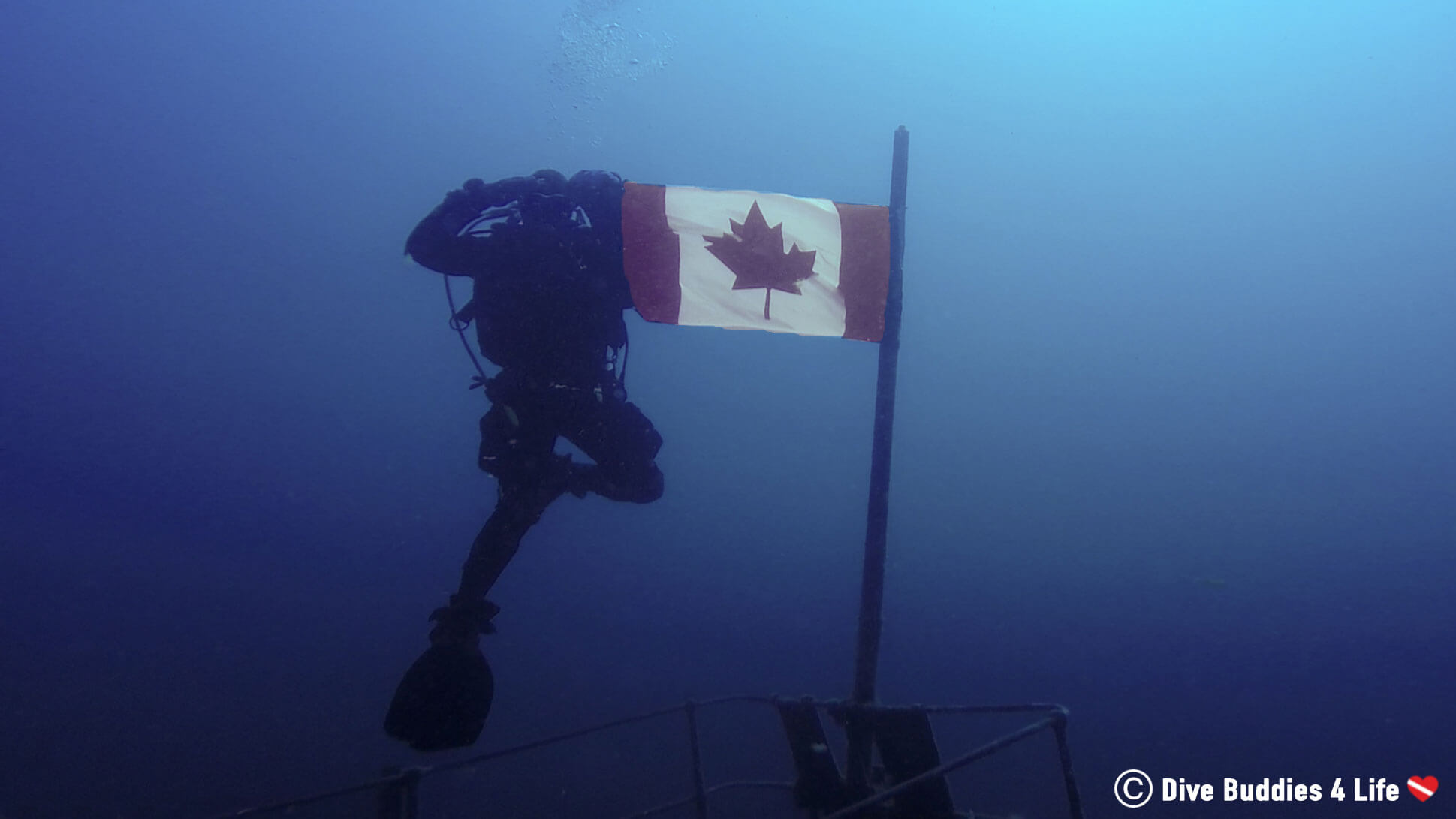
It’s no longer appropriate and often frowned upon to touch, grab or handle underwater creatures.
Not only is touching marine life dangerous for the environment and species itself, but it can also be hazardous for you. There is a smorgasbord of marine animals that are venomous, poisonous and just downright aggressive. If that is not enough, there are also aquatic creatures that are uber sensitive and susceptible to disease and sickness when poked or prodded.
Be a friend to the fishes and enjoy a hands-free dive!
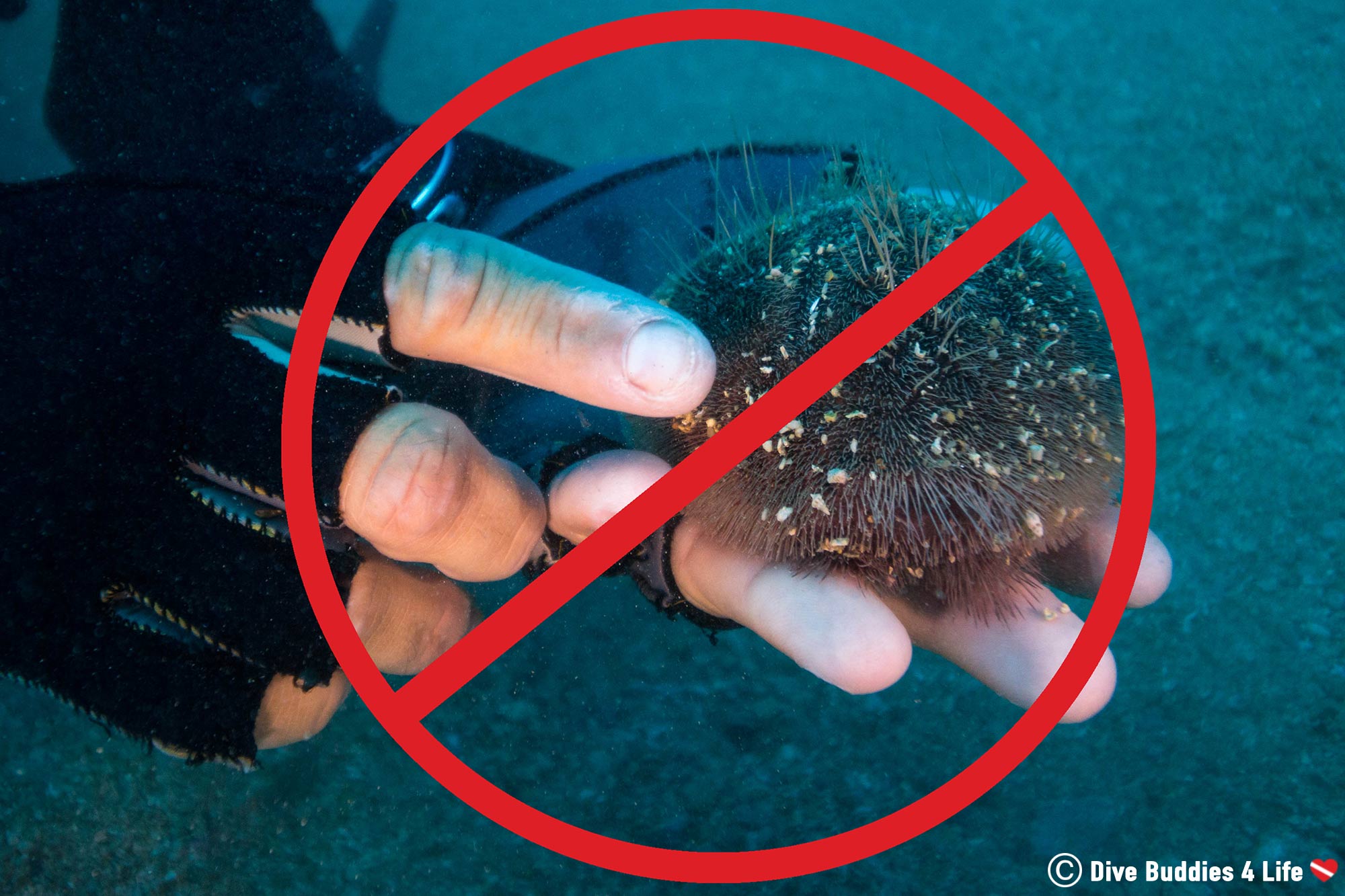
It ain’t easy being green in a day and age where everything is plastic and it’s cheaper to throw something out than actually repair it.
For scuba divers who live and breathe underwater, it’s easy to forget how privileged we are to enjoy some of the most astounding ecosystems on the planet. Given the state of our oceans, it’s not enough anymore to sit around and hope that nature can rebound. If we want to save the marine world we need to start taking action – NOW.
Not to make light of a bad situation, but in general scuba divers are some of the most eco-friendly people on the planet. Can you blame us, I mean some of our favorite pastimes involve getting up close with dainty little creatures and fragile ecosystems. Let’s find that drive and passion for starting the blue movement. Let’s get people diving in symbiosis with the underwater environment.
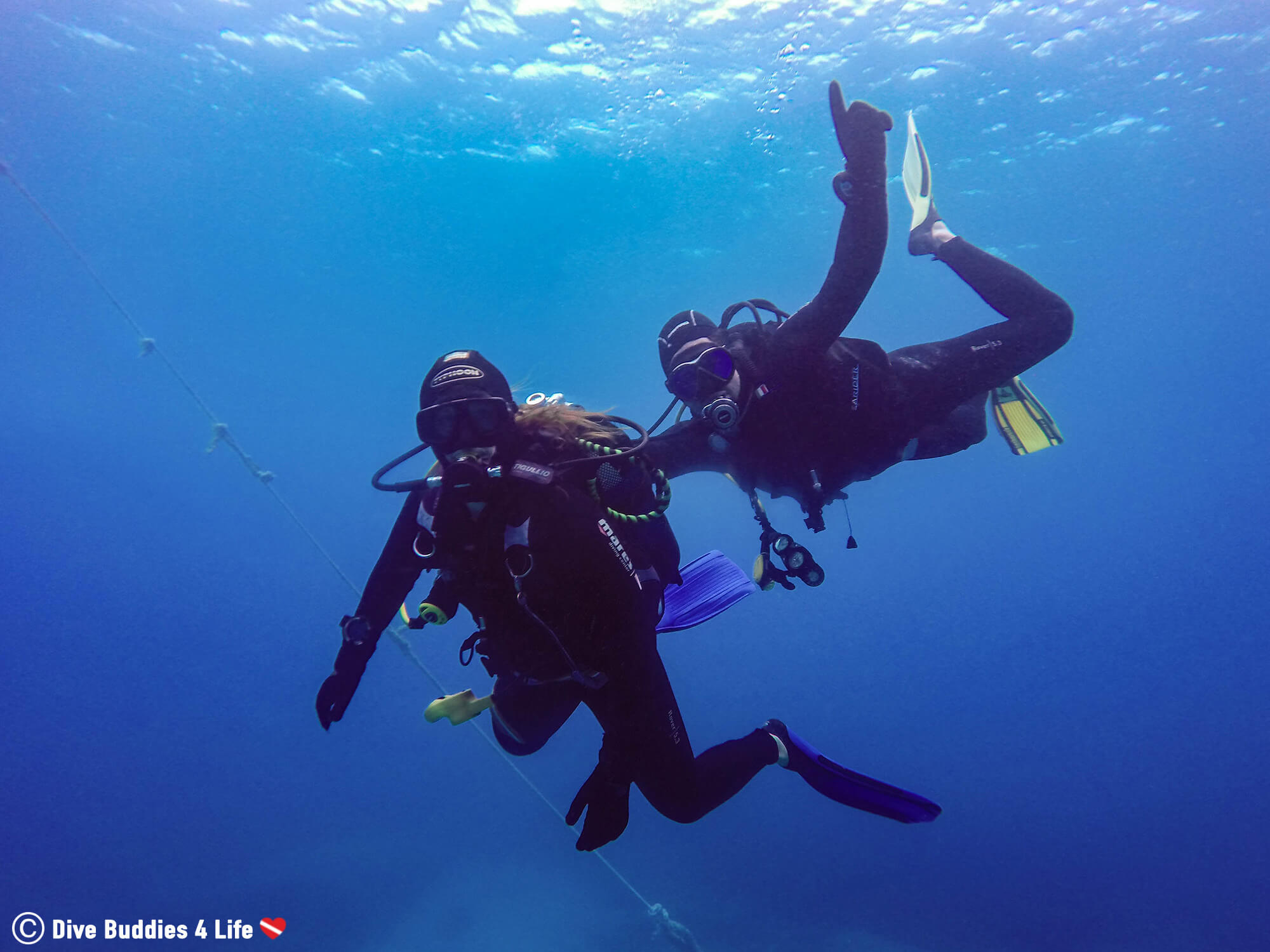
Of all these eco-friendly dive suggestions, which point would you rate as the most important for a better, healthier tomorrow and why?
Writers Note: This post may contain affiliate links. We will make a small commission if you make a purchase through one of these links, at no extra cost to you. See full disclosure and disclaimer policy here.

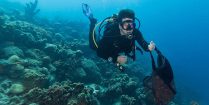
There are many ways to fight back against pollution and on Bonaire, this takes the form of scuba diving cleanups.
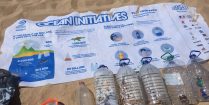
We all remember the viral Ice Bucket Challenge that went around social media to raise money for ALS? Well, like the Ice Bucket Challenge, the #binbagchallenge was an idea put together to raise awareness on environmental pollution and hopefully take steps towards a cleaner and better future.
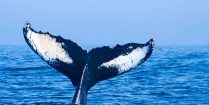
Find out how a couple of scuba divers made a gigantic snow sculpture to try and turn the tides on plastic use in the city of North Bay.
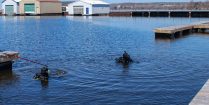
While most people were at home celebrating Mother’s Day, the North Bay Scuba Club donned dive gear and took to the water to clean up the local marina.

Green initiatives are important and in Zihuatanejo, we had the opportunity to join forces with Zihro Plastic and Dive Zihuatanejo to lending a helping fin.
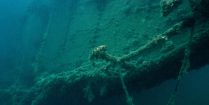
With the civil unrest a recent memory, few places in the world lay claim to unexplored waters off its coastline. Let Albania help you become an underwater explorer.
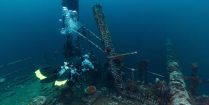
Whether sunk on purpose or as the result of a mishap, it’s a breathtaking experience to be able to visit a sunken wreck while scuba diving.
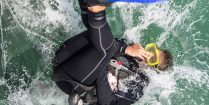
No matter what level of diver you are, scuba backroll entries are a fun-filled way to get off the dive boat and get into the water.

The day is over and the sun is setting on a day of scuba diving but is it really time to hang up your fins, or do you dare slip back into the water at night?

If marine animals could talk here's what they would say to scuba divers this Valentine’s Day.
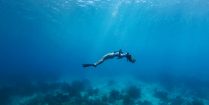
Hair versus scuba, now that's a combination that doesn't mix. So how do you stay away from the tares, tangles and hours upon hours of post-dive hair brushing?
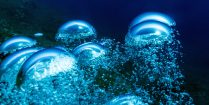
Are you a pig on air? You are not alone. Find out how you can get more out of your scuba diving tank.

Everybody loves the idea of scuba diving, but the aspect of post dive cleanup is a much different story. It’s long, it’s tedious and it almost impossible to do it without getting wet - yet again.
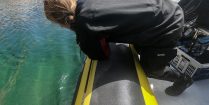
As a diver, sometimes you get hit with seasickness. Here are our solutions to dealing with seasickness before and during your dive.
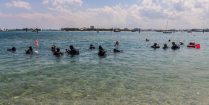
Organizing a dive vacation can be a challenge. To help, keep these four questions in mind when planning your next scuba diving vacation.

Sometimes a dive doesn’t go according to plan and when that happens, it’s important to be seen. Learn all about surface markers and why you should have one.
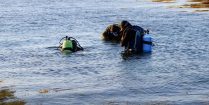
It's not easy being green in a day and age where everything is plastic and waste. Let sustainability lead the way as you explore the underwater world.
